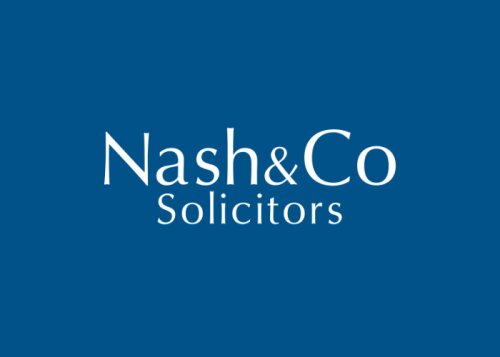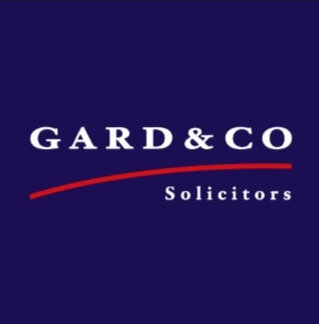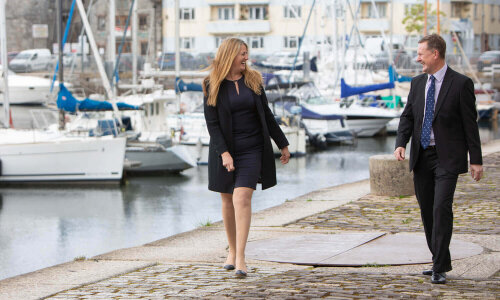Best Premises Liability Lawyers in Plymouth
Share your needs with us, get contacted by law firms.
Free. Takes 2 min.
List of the best lawyers in Plymouth, United Kingdom
About Premises Liability Law in Plymouth, United Kingdom
Premises liability law in Plymouth, United Kingdom deals with the responsibility of property owners and occupiers to ensure that their property is reasonably safe for visitors. If someone is injured due to hazardous conditions on another person’s property, they may have the right to seek compensation through a premises liability claim. This area of law applies in a variety of settings, including homes, workplaces, shops, restaurants, public spaces, and rental properties. The law is primarily guided by the Occupiers' Liability Act 1957 and 1984, which outline the duties owed to lawful visitors and, in some cases, trespassers.
Why You May Need a Lawyer
Premises liability cases can be complex and often require legal expertise to navigate the various duties and responsibilities established by law. You may need a lawyer if you have:
- Suffered an injury from a slip, trip, or fall on someone else’s property.
- Been harmed due to inadequate maintenance or repair of a public or private space.
- Encountered unsafe conditions in a rental property as a tenant.
- Faced disputes with property insurers or the property owner regarding liability or compensation.
- Complex injuries with unclear responsibility among multiple parties.
- Difficulty proving that the owner knew or should have known of the hazard.
A lawyer can help determine if you have a valid claim, assess damages, gather evidence, negotiate with insurers, and represent your interests in court if necessary.
Local Laws Overview
Premises liability in Plymouth is primarily governed by national legislation but has specific relevance in how local property owners and authorities maintain their spaces. The key aspects include:
- Occupiers' Liability Act 1957 - Imposes a duty of care on occupiers to ensure lawful visitors are reasonably safe while using the premises for intended purposes.
- Occupiers' Liability Act 1984 - Extends certain duties to trespassers, especially if the occupier knows of the danger and that trespassers may encounter it.
- Health and Safety regulations - Employers and businesses have additional duties under regulations such as the Health and Safety at Work Act 1974.
- Local Council By-Laws - Plymouth City Council maintains public areas and may have additional regulations concerning the safety of pavements, parks, and council-owned buildings.
Establishing liability commonly centres on whether the occupier or owner took reasonable steps to deal with hazards. This can include regular inspections, timely repairs, and clear warnings to visitors.
Frequently Asked Questions
What is premises liability?
Premises liability refers to a property owner's or occupier’s legal responsibility to ensure their property is safe for visitors. If someone is injured due to a dangerous condition on the property, the owner or occupier may be liable for those injuries.
Who can make a premises liability claim in Plymouth?
Anyone injured on another person's property due to unsafe conditions may bring a claim, including visitors, tenants, employees, and sometimes even trespassers.
What is a “lawful visitor” under the law?
A lawful visitor is someone who has been invited or permitted to enter or use the property, such as customers, guests, postal workers, or maintenance staff performing their duties.
Does the law protect trespassers?
Some legal protection is extended to trespassers, particularly under the Occupiers’ Liability Act 1984. However, the duty owed to trespassers is less than that owed to lawful visitors.
What are common examples of premises liability cases?
Common examples include slips on wet floors, trips over uneven surfaces or loose carpets, falling objects, injuries due to poorly maintained stairs, dog bites, and accidents in car parks or playgrounds.
What must I prove in a premises liability case?
You must show that the occupier owed you a duty of care, breached that duty by failing to maintain safe conditions, and that the breach directly caused your injury and any related losses.
What if I am partly at fault for my injury?
If you contributed to your own injury, such as by ignoring warning signs or acting recklessly, you may still claim compensation but it could be reduced to reflect your share of responsibility (contributory negligence).
How long do I have to make a claim?
Generally, you have three years from the date of the injury to start a premises liability claim. There may be exceptions for children or persons lacking mental capacity.
Who are “occupiers” for the purposes of the law?
An “occupier” is anyone with a sufficient degree of control over a property, often the owner, tenant, or business operating on the premises.
What kind of compensation can I recover?
Compensation may cover medical expenses, loss of earnings, pain and suffering, as well as other costs directly resulting from the injury.
Additional Resources
Several organisations and governmental bodies provide guidance and assistance for individuals dealing with premises liability concerns in Plymouth:
- Plymouth City Council - For reporting hazards in public spaces and guidance on local regulations.
- Citizens Advice Plymouth - Offers free advice regarding legal rights and support in making a claim.
- Health and Safety Executive (HSE) - Responsible for enforcing workplace safety laws.
- The Law Society - Directory of solicitors specialising in personal injury and premises liability.
- Association of Personal Injury Lawyers (APIL) - Information and resources for those seeking personal injury legal advice.
Next Steps
If you believe you have suffered an injury due to unsafe conditions on someone else’s property in Plymouth, it is important to take the following steps:
- Seek medical attention for your injuries and maintain detailed records of your treatment.
- Report the incident to the property owner, occupier, or relevant authority as soon as possible.
- Gather photographic evidence of the hazard and your injuries, if possible.
- Collect names and contact details of any witnesses.
- Keep records of any costs or losses associated with your injury.
- Contact a solicitor or legal advisor experienced in premises liability for an initial consultation and assessment of your case.
Beginning the legal process early and obtaining professional advice can improve your chances of a successful claim and help ensure your rights are fully protected.
Lawzana helps you find the best lawyers and law firms in Plymouth through a curated and pre-screened list of qualified legal professionals. Our platform offers rankings and detailed profiles of attorneys and law firms, allowing you to compare based on practice areas, including Premises Liability, experience, and client feedback.
Each profile includes a description of the firm's areas of practice, client reviews, team members and partners, year of establishment, spoken languages, office locations, contact information, social media presence, and any published articles or resources. Most firms on our platform speak English and are experienced in both local and international legal matters.
Get a quote from top-rated law firms in Plymouth, United Kingdom — quickly, securely, and without unnecessary hassle.
Disclaimer:
The information provided on this page is for general informational purposes only and does not constitute legal advice. While we strive to ensure the accuracy and relevance of the content, legal information may change over time, and interpretations of the law can vary. You should always consult with a qualified legal professional for advice specific to your situation.
We disclaim all liability for actions taken or not taken based on the content of this page. If you believe any information is incorrect or outdated, please contact us, and we will review and update it where appropriate.











